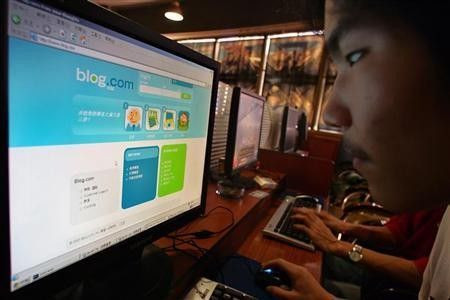Top Stories In China Blocked: ICIJ Offshore Holdings Report And Xu Zhiyong Trial Censored Online

Wednesday has been a busy day for Chinese Internet censors. Two big stories, one on the hidden offshore finances of China’s top brass and another about the start of the trial of Chinese human rights lawyer Xu Zhiyong, broke on the same day, testing the censorship powers of China’s media watchdogs.
The detention and prosecution of Xu, an anti-corruption activist, have been kept hush-hush. As his trial begins, international media have tried to cover the unfolding case. But online, particularly on popular microblogging platform Weibo, all discussion about Xu has been blocked. According to Free Weibo, a website that records the cache of all postings on the social media site -- even things that are blocked -- Xu Zhiyong’s trial is the phrase most discussed and most blocked Wednesday on Weibo. Besides censoring online coverage, Chinese authorities have also been able to block television reports. According a tweet by David McKenzie, CNN’s Beijing correspondent, the network’s coverage of the trial, which included him going down to the courthouse in Beijing and getting roughed up by police outside, was censored.
CNN coverage of #XuZhiyong trial blacked out in China.
- David McKenzie (@McKenzieCNN) January 22, 2014Meanwhile, members of a news team from BBC also said they were "manhandled [and] detained" while attempting to cover the same trial.
On top of that, a new investigative report published by the International Consortium of Investigative Journalists with information about the offshore accounts of China’s most wealthy and powerful quickly made the rounds of foreign media. Noticeably quiet, however, was Chinese media. Not surprisingly, no local Chinese media outlets, which are all technically state-run, have jumped on the story, which delves not only into the allegations about the hidden wealth of former leaders but also into current President Xi Jinping’s family. Online censors acted swiftly to block the report, also published in Chinese, on Weibo, earning the word “offshore” the title of second-most-searched and blocked of the day and putting “ICIJ” fourth, according to Free Weibo.
The discussion online, though blocked, remained active. “Just learned a new word today, ‘off-shore,’” one blogger said, along with a link to the ICIJ article, which was blocked. Others noticed the eerie silence on Weibo as a result of the censorship. “Two key things happened today: the ‘silent trial’ and ‘offshore assets,’ not that you would know on Weibo,” another blogger who had a blocked post noted.
© Copyright IBTimes 2025. All rights reserved.





















